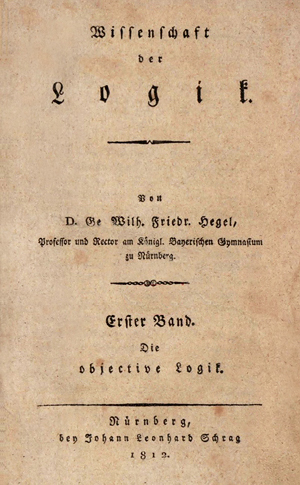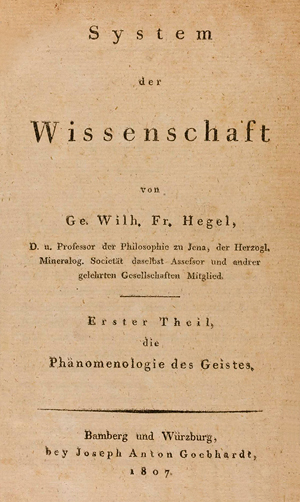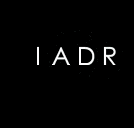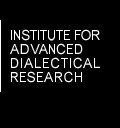  

  
 |
“The
power of negative thinking is the driving power of dialectical
thought.”
—Herbert Marcuse (“Note
on Dialectic”) READ
MARCUSE'S "NOTE ON DIALECTIC"
-
ABOUT THE INSTITUTE
-
Established
on World Philosophy Day 2020, the Institute for Advanced Dialectical
Research is the world’s only body dedicated to the exploration,
development and advancement of dialectical thinking. 2020
also marked the 250th anniversary of the birth of G.W.F. Hegel
(1770 – 1831), whose major works form
the basis of modern dialectics.
-
Dialectic is one of the oldest forms of philosophy,
but it was Hegel who brought it to the forefront of 19th century
thinking—not only in his breakthrough studies in logic and
phenomenology (LEFT),
but also in social & political philosophy, philosophy
of history, history of philosophy, philosophy of science,
aesthetics, etc.
-
After his death, dialectic continued to influence
generations of old-, young-, left-, right- and neo-Hegelian
movements. In the 20th century, Heidegger called the dialectic
of Hegel’s Science of Logic “the most powerful thinking
of modern times” (On Time & Being). In Critical
Theory, Adorno, Marcuse and others in the Institute for Social
Research developed devastating dialectical critiques of culture,
society, technology and political power. In the struggle for
civil rights, Martin Luther King, Jr. wrote in his autobiography
of his intensive study of Hegel and the profound influence
of dialectical philosophy on his own thinking. In science,
Werner Heisenberg and other theoretical physicists have acknowledged
clear parallels between quantum mechanics and Hegelian dialectics.
Dialectic has also influenced multiple schools of thought
in psychology, including Dialectical Behavior Therapy, Paradoxical
Psychotherapy and Dialectical Constructivism. Further examples
of dialectical thinking in science could also be cited in
anthropology, biology, chemistry, etc.
-
Dialectic clearly has a wide range of interpretations,
influences and theoretical & practical applications, but,
until now, no attempt has been made to engage with them in
a comparative, critical and systematic way; nor has much,
if any, attention been paid, in the West, to the long tradition
of dialectical research in non-western countries, particularly
Russia and China. One of the main aims of the Institute, then,
is to foster interdisciplinary dialogue, debate and collaboration
by reducing barriers between traditional arts, humanities
and scientific fields in hopes of enabling and encouraging
research discoveries and breakthroughs that would otherwise
not be possible.
-
We believe that we are on the verge of an intellectual
revolution—not merely in logic, phenomenology or even philosophy
in general, but in all fields in which genuinely dialectical
thinking finds some application. We envision the advancement
and propagation of dialectic by bringing together thinkers
from various fields through the facilitation of discussions,
reading groups, lectures, symposia,
publication of the Institute’s Journal,
and through the direct intellectual engagement provided by
our international on-line forum.
-
Through these means, the Institute may be seen
as preparing the way for more widespread understanding and
application of dialectical thinking in the spirit of Hegel,
who described dialectic as the philosophy of the future*.
We believe now—more than 200 years later—that the future Hegel
envisioned is within reach.
*Hegel
opens the first edition of the encyclopedic presentation of
his dialectical system by remarking, apologetically, that he
fears he has “let this overview of the entire scope of the philosophy
come to light earlier than I would have otherwise thought appropriate.”
His tone becomes bolder, however, when he declares: “The present
exposition … sets out a new reworking of philosophy according
to a method that I hope will yet be recognised as the only true
one”.
—Encyclopedia of the Philosophical Sciences in Outline,
preface to the 1st edition
(1817).
MORE:
READ MARCUSE'S "NOTE ON DIALECTIC"
|
|
















